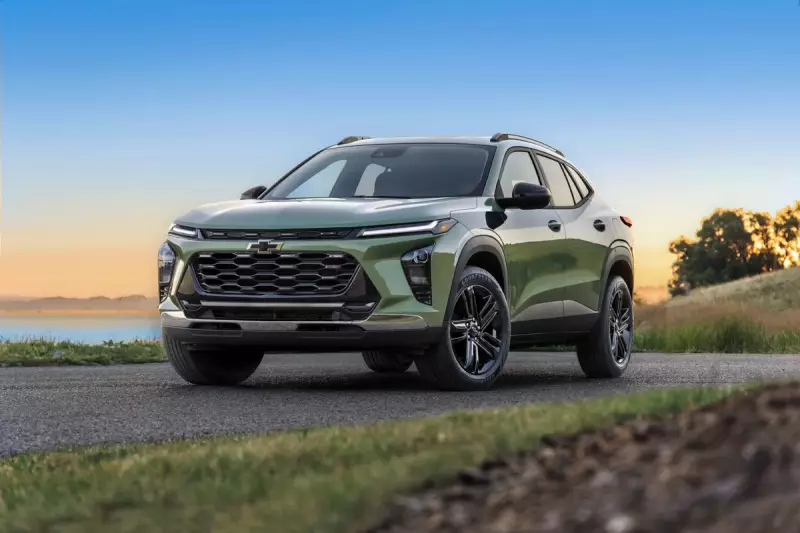
As the year draws to a close, car buyers in the market for an affordable and practical subcompact SUV are faced with some compelling new options. Two of the most notable contenders are the completely redesigned Chevrolet Trax and the updated Volkswagen Taos. Automotive experts at Edmunds have put both vehicles through their paces to determine which one represents the smarter purchase for British motorists.
Performance and Fuel Economy Face-Off
Under the bonnet, these two SUVs take different approaches. The Chevrolet Trax is powered by a turbocharged three-cylinder engine that delivers 137 horsepower. During testing, it managed the zero to 60 mph sprint in 9.1 seconds. While this provides adequate power for navigating city streets, the Trax can feel somewhat strained on motorway journeys.
In contrast, the Volkswagen Taos offers more robust performance with its turbocharged four-cylinder engine generating 174 horsepower. When equipped with the available all-wheel-drive system, it accelerated from zero to 60 mph in a much quicker 7.8 seconds. This extra power is particularly noticeable when overtaking or carrying a full load of passengers.
Both models are commendably efficient. The Trax achieves up to an EPA-estimated 30 mpg in combined driving, while the Taos slightly edges it out with an estimated 31 mpg combined. A crucial differentiator is that the Trax does not offer all-wheel drive, which could be a deciding factor for those who require extra traction during the UK's winter months.
Technology and Interior Comforts
The technology battle is closely fought. Both SUVs come well-equipped with standard features including a four-speaker sound system and smartphone integration with Apple CarPlay and Android Auto. The Trax offers wireless smartphone connectivity across all trim levels, while most Taos models have this feature – though the base version requires a USB cable connection.
Chevrolet provides an optional larger 11-inch centre touchscreen, whereas the Taos is limited to an 8-inch display. However, the Volkswagen fights back with more USB-C fast-charging ports and an available integrated navigation system, which isn't offered on the Trax at any level. The Taos also includes more driver assistance features as standard, such as adaptive cruise control and blind-spot monitoring.
When it comes to interior space, the Taos clearly has the advantage. It provides nearly 28 cubic feet of cargo space behind the rear seats – about 2.3 cubic feet more than the Trax. With the rear seats folded, this expands to 65.9 cubic feet versus the Trax's 54.1 cubic feet. While the Chevy offers slightly more rear legroom, the Taos provides greater headroom for taller occupants.
The Taos also offers more upscale interior options for those willing to pay, including ventilated leather front seats, ambient lighting, and a premium audio system – features you won't find in the more budget-focused Trax.
Pricing and Final Verdict
Where the Chevrolet Trax truly shines is its starting price. The 2025 model begins at just $21,895, including destination fees, making it considerably more affordable than the Taos, which starts at $26,920. This pricing advantage continues through the trim levels, with a top-spec Trax Activ costing less than $27,000 compared to a fully-loaded Taos approaching $37,000.
Edmunds concludes that for buyers seeking maximum value, the Trax is difficult to beat. However, for those who prioritise overall refinement, superior performance, and additional convenience features – including the available all-wheel drive – the Volkswagen Taos is worth the extra investment.





